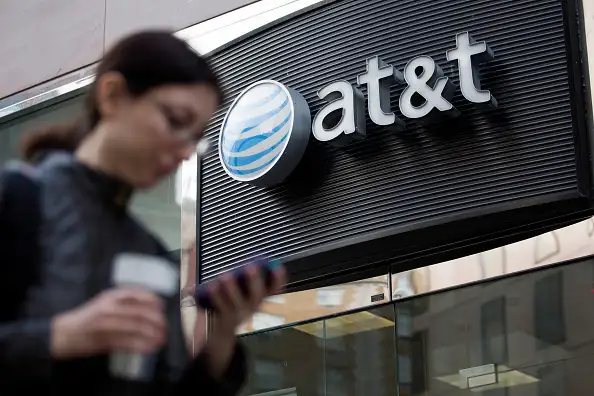Hey AT&T Customers: It May Be Time to Give Up Your Unlimited Data Plan

Almost half of all AT&T mobile customers are still clinging desperately to a grandfathered cellphone plan with unlimited data, according to a survey from Consumer Intelligence Research Partners (CIRP). But that choice is looking particularly unfortunate in light of the Federal Trade Commission's latest lawsuit.
In a complaint filed Tuesday, the federal agency alleges that AT&T has been slowing data speeds for consumers on "unlimited" plans, in some cases by up to 95%. The practice of reducing data speeds for heavy users, called "throttling," can make it very difficult to complete routine tasks like browsing the web or using GPS navigation. In some dense metro areas like New York and San Francisco, AT&T allegedly throttled users who consumed as little as 2 GB a month. Altogether, the New York Times estimates, about 25% of AT&T's unlimited data plan customers were affected.
"AT&T promised its customers 'unlimited' data, and in many instances, it has failed to deliver on that promise," FTC chairwoman Edith Ramirez says in a statement. "The issue here is simple: 'unlimited' means unlimited."
AT&T calls the charges "baseless" and says it warned customers that heavy users could be throttled. But while AT&T's alleged behavior is particularly egregious, the carrier wouldn't be the only one to limit data use on so-called "unlimited" plans, as Ars Technica has reported.
For example, Sprint's My Way plan promises unlimited data for the life of the line of service, but read the fine print: The carrier also throttles the top 5% of its users, as part of its "network management" strategy. Sprint says that users who consume more than 5 GB are generally at risk for throttling, though it varies by month.
Likewise, while T-Mobile has repeatedly said it does not throttle its unlimited customers, its fine print notes that the top 3% of users might see their data slowed "during times and in places of network congestion."
Similarly, Verizon throttles the top 5% of customers still on 3G. Verizon had planned to slow speeds for the heaviest users on 4G, but it shelved that idea after receiving its own stern warning from the FTC. Maybe Verizon has less to worry about—according to CIRP, it has already moved the vast majority of its customers off unlimited plans.
In fact, Verizon hasn't sold a single new unlimited cellphone plan in two years. AT&T hasn't offered an unlimited plan in four years. The two biggest American carriers have been trying to wean customers off of unlimited data plans for a while now, or else the wireless companies risk becoming victims of their own success.
First Unlimited Calls, Then Unlimited Data
The unlimited model was born in the late 1990s, when AT&T launched its first One Rate phone plan, explains Kirk Parsons, senior director of telecom services at J.D. Power. Customers loved the certainty: the same bill, every month, with no separate charges for roaming or long distance calls.
That model still made sense when the phone carrier introduced data plans for smartphone users—so much sense that by 2008, AT&T actually forced all iPhone 3G customers to buy an unlimited data plan. Back then, it was a moneymaker: You could offer unlimited data because people wouldn't use a lot of it, and it didn't cost a lot anyways. That's all changed.
"When smartphones started coming out, the networks weren’t up to snuff," Parsons says. "You couldn't actually enjoy the experience of videos and downloads. Once 3G coverage widened, then we transitioned from 3G to 4G, that's when you really saw people using data on their phones, streaming music, watching shows."
Now, the carriers have created a nation of data addicts. As of December 2013, Americans consumed 269.1 billion MB of cellphone data a month—far more than double what they consumed a year before. It's just too expensive to keep up with our insatiable demand. The carriers have to buy or lease radio frequencies all around the country to provide good service, says Logan Abbott, president of Wirefly.com. There's only so much bandwidth.
"Consider it like a nationwide wifi network," Abbott says. "If you have everyone in your house on one wifi connection—downloading, streaming Netflix, doing data-intensive stuff—your bandwidth is going to get used up ... It’s going to put drag on your network."
Of course, if AT&T acted as the FTC claims, consumers got a really raw deal. While the other carriers say they throttle just a small fraction of the heaviest users for network management reasons, AT&T is accused of slowing service for 3.5 million of its 14 million subscribers.
Still, limited data is the way of the future. Not that AT&T customers want to hear it—there's a reason 44% of them haven't changed cellphone plans in over four years. "It doesn’t necessarily make sense, but they like the security blanket of never being overcharged," Abbott says. "They have a vintage product, and they don't want to let go."
Paying for More Data Than You Actually Use
The truth is, if you're an AT&T user, it might be time to give up your unlimited plan. The first thing to do is check your account to see how much data you really use—it may not be as much as you think.
Slate has prepared some handy interactive charts that show how much data you'd have to use before an unlimited plan pays off, but this is the main takeaway: If you're only using 1 or 2 GB of data—like most typical users—you're likely overpaying for the unlimited option. You simply don't need that much.
If, on the other hand, you're using a lot more, the FTC says you're being throttled—in which case, you might as well shell out a little more money for a data plan that actually delivers the speeds advertised.
Related:
- The 10 Best Cellphone Plans of 2014
- QUIZ: What’s Your Perfect Cellphone Plan?
- Want to Dump Your Cell Service Provider? Do These 4 Things First
Read next: This Is the Best Wireless Carrier for You
